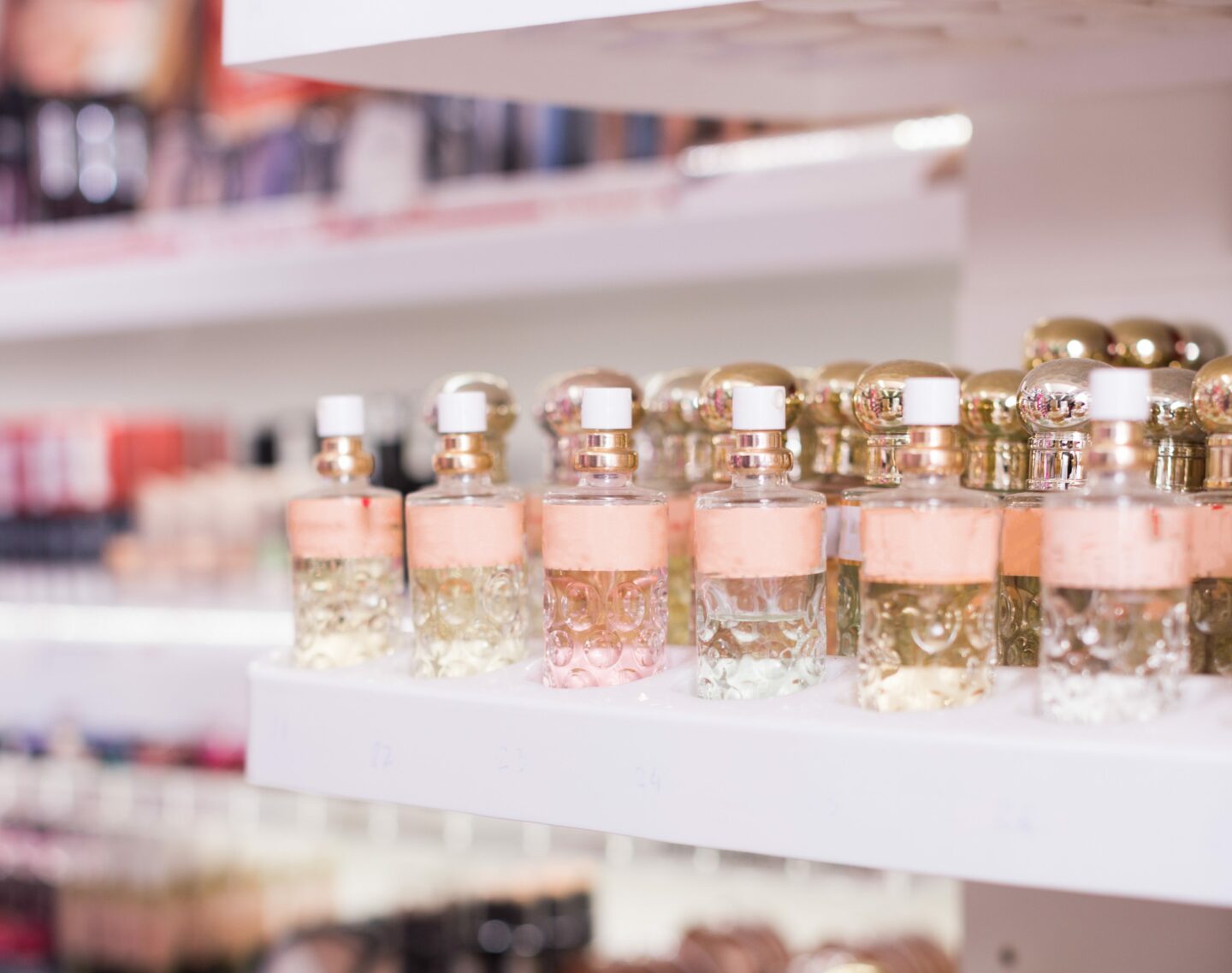

Set up your shop
Create my project

A step-by-step guide to opening a perfumery
21 April 2023
A perfumery is an excellent choice for you to pursue if you want to launch a company but have limited financial resources. As the demand for fragrances continues to increase year-over-year, particularly among women, retailers stock their inventory with a variety of perfumes to suit a variety of scenarios.
Opening a perfumery can be a viable business opportunity for those passionate about fragrances and with a good sense of entrepreneurship. Below is a comprehensive guide outlining the many procedures that must be taken to launch your own retail store in the perfume industry.
Summary
- An Introduction to the World of Perfumery
- Market Study - Is Starting a Perfumery a Good Idea?
- Develop a Solid Business Plan
- The Cost of a Perfumery Start-Up
- Seek Guidance from Legal Advisors
- Research Clientele and Target Audience
- Ensure You've Done Proper Bookkeeping
- Find the Right Products
- The Bottom Line
- FAQs
An Introduction to the World of Perfumery
It is believed that the ancient Egyptians, who burned aromatic woods and plants for their pleasant odours, were the ones who came up with the concept of perfume. The word perfume comes from a Latin phrase that means “via smoke.” Every major civilisation has used perfume and contributed to its development, refinement, and improvement.
There are tens of thousands of perfumes and colognes available on the market today, each with its distinctive aroma. Once only available to the wealthy and privileged, perfumes and colognes are now accessible to everyone. Consequently, more than 15,000 individuals in the United Kingdom have jobs in the fragrance and cosmetics industries. According to an IBISWorld market research report for 2021-2022, the value has increased by 1.3% annually since 2014, bringing it to its current level of £5 billion. An astonishing amount of money is made in the fragrance industry worldwide. The analysts at Statista project its value to reach £42 billion globally by 2024.
Market Study - Is Starting a Perfumery a Good Idea?
Starting a perfumery can be a good idea if there is demand for high-quality fragrances in the local market. Conducting a market study can help determine if opening a perfumery is a viable business opportunity. Here are some key factors to consider:
- Market size and growth potential: Determine the market size for perfumes in your local area and assess its growth potential. Look at market reports, industry publications, and online resources to gather data on the perfume industry.
- Target audience: Identify your target audience for perfumes. Consider demographics such as age, gender, income, and lifestyle. Determine their purchasing habits, preferences, and price points.
- Competition: Analyse the competition in the local market. Identify the number of perfumeries, location, brand positioning, and pricing strategies. Determine how you can differentiate your perfumery from the competition.
- Supplier network: Assess the availability and cost of high-quality fragrance suppliers in your area. Consider the variety of fragrances they offer and their reputation in the industry. You can also find a wholesaler network, like Ankorstore, to ensure you have high quality fragrances made by independent brands in Europe.
- Regulations: Understand the regulations and requirements for operating a perfumery in your area. This may include permits, licences, zoning regulations, and health and safety standards.
- Financial viability: Calculate the financial viability of starting a perfumery. Consider the initial investment required, ongoing costs such as rent, inventory, and staff, and expected revenue and profit margins.
Based on the market study results, you can determine whether starting a perfumery is a good idea. If there is a demand for high-quality fragrances in the local market and the competition is not too oversaturated, opening a perfumery can be a profitable business opportunity.
Develop a Solid Business Plan
Everything begins with a business plan!
Developing a solid business plan is crucial when opening a perfumery. A good business plan helps the perfumery owner define the business’s purpose, identify the target market, create a marketing strategy, and establish financial projections.
Business plan examples include goals for the next 3, 6, and 12 months in terms of the number of products you want to provide, the number of brands you want to work with, the cash flow you want, and the financial forecast you want. Here are some other key elements to consider when developing a business plan for a perfumery:
- Market analysis: Conduct a thorough analysis of the perfume industry, including trends, competition, and customer preferences.
- Products and services: Define the types of fragrances and services the perfumery will offer.
- Marketing and sales strategies: Develop a plan to attract and retain customers, including advertising, promotions, and customer loyalty programmes.
- Financial projections: Create a detailed financial plan, including startup costs, projected revenue and cash flow.
- Management and staffing: Define the roles and responsibilities of the management team and staff.
- Legal requirements: Understand the legal requirements and regulations for operating a perfumery.
A solid business plan can help the perfume retailer make informed decisions, secure funding, and ensure the business’s success. Regularly reviewing and updating the business plan will help shop owners adapt to market changes and stay competitive.
The Cost of a Perfumery Start-Up
If you are considering opening a shop, you first need to calculate how much money you will need to invest upfront to ensure everything runs well. The cost of starting a perfumery in the UK can vary depending on several factors, such as the size and location of the perfumery, the type of fragrances offered, and the equipment and materials needed. Below is a breakdown of the typical costs involved in starting a perfumery in the UK:
- Rent and utilities: The cost of rent and utilities can vary depending on the location and size of the perfumery. For a small perfumery, the monthly rent could range from £800 to £3,000 per month.
- Marketing and advertising: Marketing and advertising costs include website development, advertising campaigns, and social media marketing. A small budget for marketing and advertising can be around £1,000 to £3,000.
- Legal and regulatory fees: Legal and regulatory fees may include business registration, permits, licences, and insurance. The cost of legal and regulatory fees can range from £500 to £3,000.
- Staffing costs: Staffing costs will depend on the size of the perfumery and the number of employees. For a small perfumery, staffing costs could be around £1,500 to £3,000 per month.
Overall, the total cost of starting a perfumery in the UK can range from £20,000 to £50,000, depending on the factors mentioned above.
Seek Guidance from Legal Advisors
Seeking guidance from legal advisors when opening a perfumery is essential for ensuring the business complies with all legal and regulatory requirements. Legal advisors can provide guidance on various aspects, including registering the business and obtaining necessary permits and licences.
Here are some areas where legal advisors can come in handy:
- Business registration: Legal advisors can assist with registering the business and obtaining necessary permits and licences.
- Contracts and agreements: Legal advisors can review and draft contracts and agreements, such as supplier contracts and employment agreements.
- Intellectual property: Legal advisors can provide guidance on protecting the perfumery’s intellectual property, such as trademarks and copyrights.
- Employment law: Legal advisors can keep you updated with employment laws, such as minimum wage requirements and employee benefits.
By seeking guidance from legal advisors, perfume retailers can ensure that the business complies with all legal requirements and minimise the risk of legal issues. It is important to find a reputable and experienced legal advisor who is familiar with the laws and regulations related to the perfume industry.
Research Clientele and Target Audience
Identifying a target market can be a challenging task. For instance, the vast majority of men do not purchase their own perfumes, and when they do, they almost always choose a scent that is loved by the woman they are romantically involved with. According to the latest statistics, women purchase between 60 and 70% of all men’s fragrances (often to wear themselves).
Researching the clientele and target audience before opening a perfumery is crucial for identifying the needs and preferences of potential customers. By understanding the demographics and purchasing habits of the target audience, the perfumery owner can create a marketing strategy that effectively reaches and resonates with potential customers. This will increase the chances of success and help the perfumery stand out in a competitive market.
The more knowledge you have of your target market, the better prepared you’ll be to attract their attention.
Ensure You've Done Proper Bookkeeping
Proper bookkeeping is crucial for the success of any business, including perfumeries. Bookkeeping involves keeping track of all financial transactions, including sales, expenses, and taxes. It is important to maintain accurate and up-to-date financial records to make informed business decisions and comply with legal and regulatory requirements. Here are some tips to ensure proper bookkeeping for a perfumery:
- Use accounting software: Use accounting software to track financial transactions and generate reports. This can help to streamline the bookkeeping process and ensure accuracy.
- Separate personal and business finances: Keep personal and business finances separate to avoid confusion and ensure accurate financial records.
- Keep track of expenses: Keep receipts and records of all expenses, including supplies, equipment, and rent.
- Monitor cash flow: Monitor cash flow to ensure that there is enough cash to cover expenses and invest in the business.
- Stay on top of taxes: Keep track of taxes owed and deadlines for filing tax returns to avoid penalties.
- Hire a bookkeeper or accountant: Consider hiring a bookkeeper or accountant to ensure that bookkeeping is done accurately and efficiently.
By ensuring up-to-date bookkeeping, a retailer can make informed business decisions, identify areas for improvement, and comply with legal and regulatory requirements. This can help to ensure the success and longevity of the business.
Find the Right Products
After you’ve nailed down your target market and all the legalities have been squared away, you need to answer the question about how you’re going to stock your shelves. Hopefully you’ve thought about the type of products you want to sell. Are high end perfumes a big selling point for your audience? Do you think niche perfume brands are a must have for your store?
With the questions answered, it’s time to go search for a wholesaler who has the right products at the right prices for you. Ankorstore is a platform that enables small retailers to work directly with independent retailers who share their values, and with over 30,000 products available at wholesale prices, it’s sure to have something that would fit your business and your audience.
The Bottom Line
Opening a perfumery requires careful planning, research, and execution. With the right strategy and resources, you can create a successful business that offers high-quality fragrances and exceptional customer service. If you are interested in opening a shop that is both successful and unique, follow the given guidelines to get started on the right foot.
Additionally, you might want to think about joining a community of like-minded retail entrepreneurs. The expert team at Ankorstart is there to provide help and direction for you at any time. We’re committed to assisting new retail shop owners in getting their companies off the ground and running successfully. Our programme gives new owners of retail businesses the direction, assistance, and advice they need to get started.
Ankorstart is a programme with no requirements for users and is free to enrol. There are already more than 20,000 retail businesses participating in the Ankorstart initiative. We encourage you to explore how we can assist you in establishing a successful and long-lasting perfume business.
FAQs
Is the perfume business profitable?
The fragrance industry is highly lucrative, but that doesn’t guarantee success. The profitability of a perfume business will differ depending on the sector in which it operates, the location of the firm geographically, and other considerations. However, having a strategic business plan can boost the likelihood of success for your perfume business.
What are the legal requirements for opening a perfumery in the UK?
The legal requirements for opening a perfumery in the UK include registering the business, obtaining necessary permits and licences, and complying with health and safety regulations.
What kind of perfumes should I stock in my perfumery?
The type of perfumes you stock in your perfumery should be based on your target audience and market research. Consider stocking a mix of classic, contemporary, and niche fragrances to appeal to a diverse range of customers.
How can I find the right distribution channel for my perfumery?
To find the right distribution channel, consider your target audience, evaluate the pros and cons of each distribution channel, research and negotiate with potential partners, and consider a multi-channel approach.
How can I ensure the success of my perfumery?
To ensure the success of your perfumery, develop a solid business plan, conduct market research, identify and target your audience, offer exceptional customer service, and continuously evaluate and adjust your strategies as needed.
Related posts "Create my project"

For entrepreneurs opening a shop, designing a compelling brand identity is crucial to stand out from the competition.
This article explores how thoughtful product selection, marketing strategy and customer experience can boost sales and strengthen brand image.

We’ll take a deep dive into market research, taking a look at primary and secondary sources and how you, as a small retail business owner can conduct your own market research, as well as why you should!

In this article, you’ll find all the information you require to get your business off the ground in this comprehensive guide on how to start a shoe business. In our article below, we provide you with some ideas on how to find success with your shoe store.

Over the past decade, the organic goods business sectors in the UK have been witnessing explosive expansion and continue to draw in new investment opportunities. This quick guide walks you through the steps necessary to obtain a licence and get your organic grocery store business off the ground and on the right foot.


